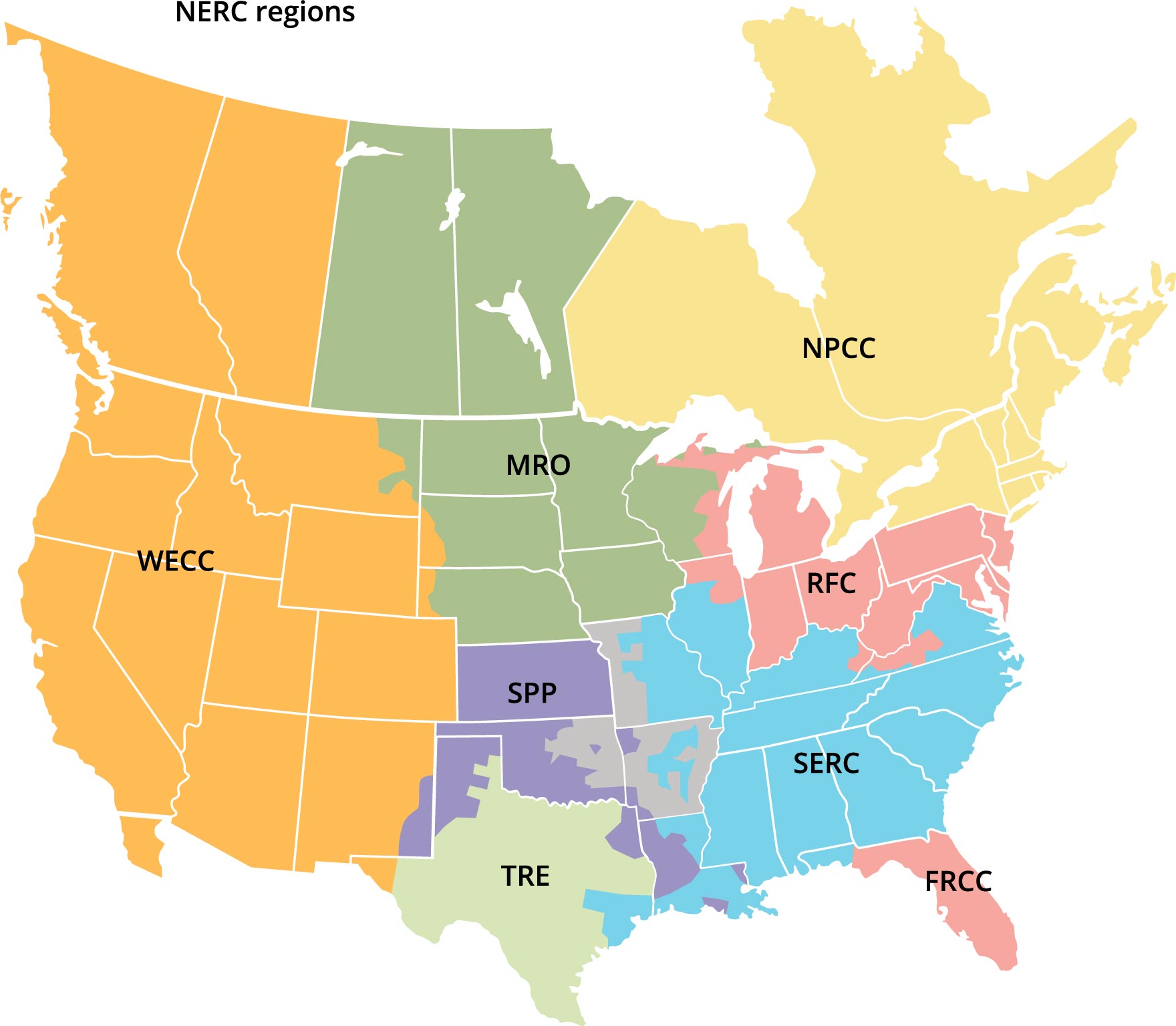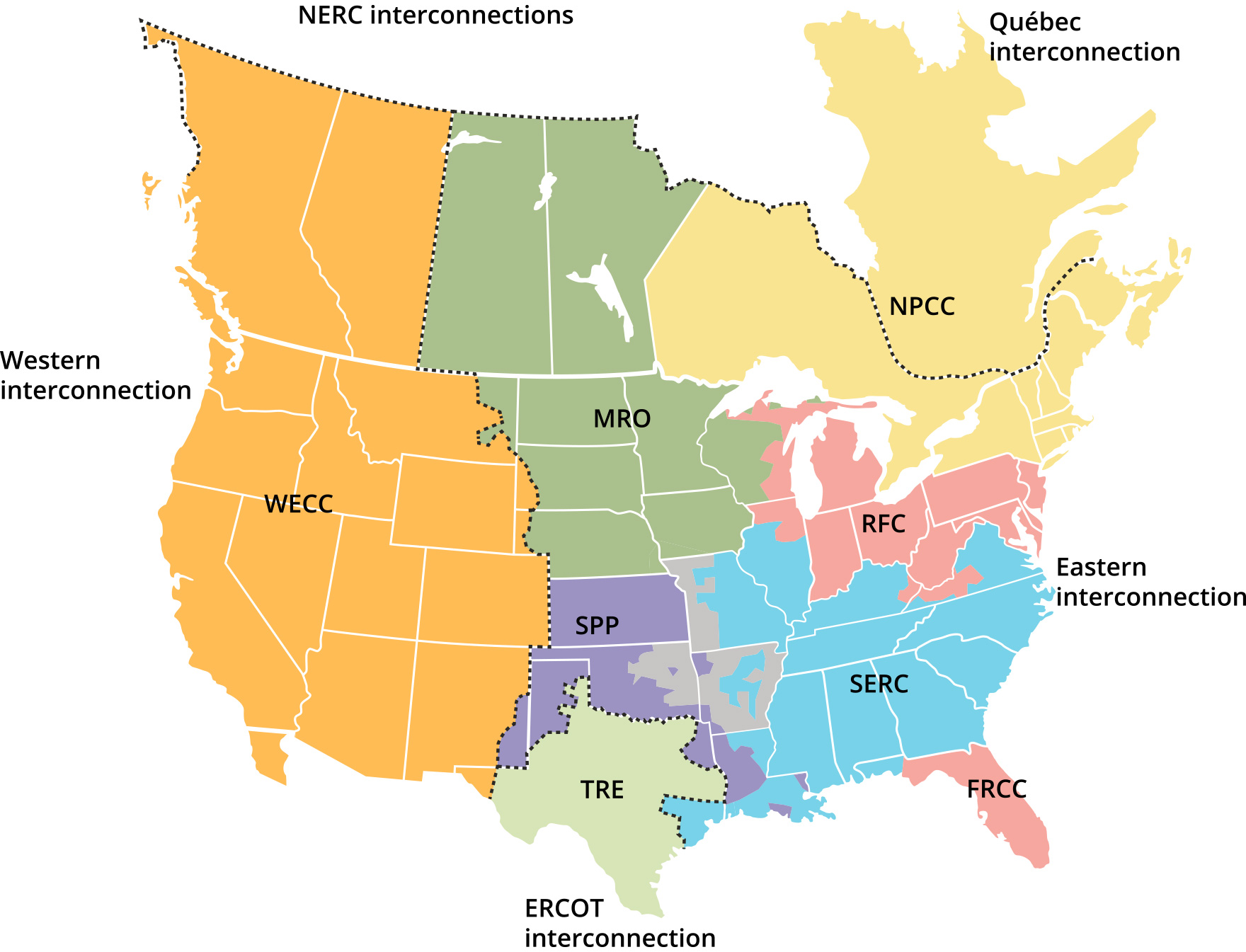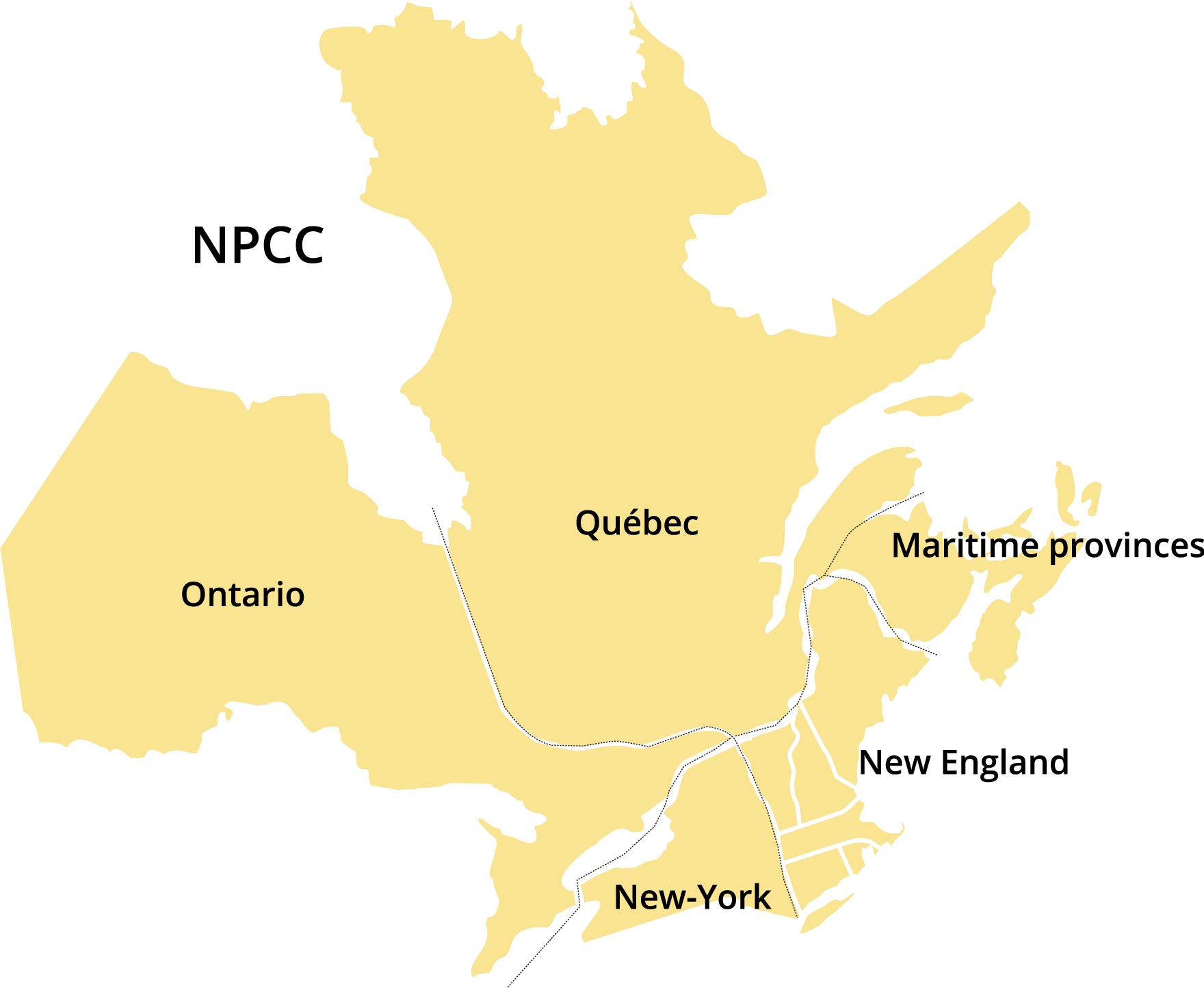Reliability News No. 1
Stakeholders in electric power reliability in North America
In North America, electric power generation, transmission and distribution are regulated. Governments have set up bodies to act as economic regulators and others to establish standards and criteria governing the planning, operation and maintenance of power generation, transmission and distribution systems.
In Québec, electric power system reliability is primarily overseen by the following:
- the Régie de l’énergie
- the North American Electric Reliability Corporation
- the Northeast Power Coordinating Council
The last two entities also play a role in neighboring territories. In the United States, the Federal Energy Regulatory Commission (FERC) performs the same function as the Régie de l’énergie in Québec, while other regulatory bodies bear that responsibility in Ontario and New Brunswick.
North American Electric Reliability Corporation
The North American Electric Reliability Corporation (NERC) is a not-for-profit organization established in 1968 in response to the November 9, 1965, blackout that affected 30 million people in northeastern North America. NERC’s mission is to ensure the reliability and security of the North American bulk power system. It comprises eight regional reliability councils that cover the United States, Canada and the northern portion of Baja California, Mexico.

NERC’s mandate
- Develop and enforce reliability standards
- File reliability standards with FERC for approval in the U.S.
- Negotiate agreements with the competent authorities in Canada and Mexico with a view to having the standards adopted outside the U.S.
- Monitor the Bulk Electric System
- Assess the future needs of the Bulk Electric System
- Conduct reliability standard compliance audits on companies, operators and users
- Train and certify power company personnel in reliability
Power systems subject to NERC standards
The power transmission systems subject to NERC reliability standards are divided into four interconnected groups of grids known as interconnections.
- Eastern Interconnection
- Western Interconnection
- ERCOT (Electric Reliability Council of Texas) Interconnection
- Québec Interconnection
All the grids making up an Interconnection are operated synchronously, while the ties between the Interconnections are asynchronous.

Northeast Power Coordinating Council
Québec belongs to the Northeast Power Coordinating Council (NPCC), one of the eight NERC Regional Reliability Councils. The NPCC groups together the power system operators of northeastern North America, including New York state and the New England states, Ontario, Québec and the Maritime provinces.

The NPCC’s mission is to promote the reliable and efficient operation of the interconnected bulk power system in northeastern North America through the:
- Coordination of system planning and operations
- Assessment of reliability
- Monitoring of compliance with NERC reliability standard requirements
- Establishment of regional standards
- Monitoring and enforcement of voluntary compliance with NPCC criteria
Régie de l’énergie
The Régie de l’énergie of Québec is an economic regulator whose mission is to reconcile the public interest and consumer protection with fair treatment of the power transmission provider and the various distributors. It ensures that energy needs are met while promoting sustainable development as well as individual and collective equity.
In December 2006, the Act respecting Régie de l’énergie (the Act) conferred the Régie powers and obligations regarding power system reliability in Québec, including:
- The power to adopt reliability standards and
- The obligation to monitor compliance of Québec entities with those standards.
Furthermore, the Act empowers the Régie to enter into agreements with recognized standards bodies, which it did with NERC and NPCC.
Federal Energy Regulatory Commission
In Québec, the Régie de l’énergie is responsible for adopting mandatory reliability standards and for monitoring the compliance of the entities it regulates, while in the United States, the FERC has that role. FERC is an independent federal agency that regulates economic, environmental and safety issues in the United States energy sector in the interest of the American public. In addition to regulating the interstate transmission of electricity, natural gas and oil, since 2005 FERC has also administered mandatory reliability protection and cybersecurity standards for the Bulk Electric System in the United States. It plays a key role in the development of NERC standards.